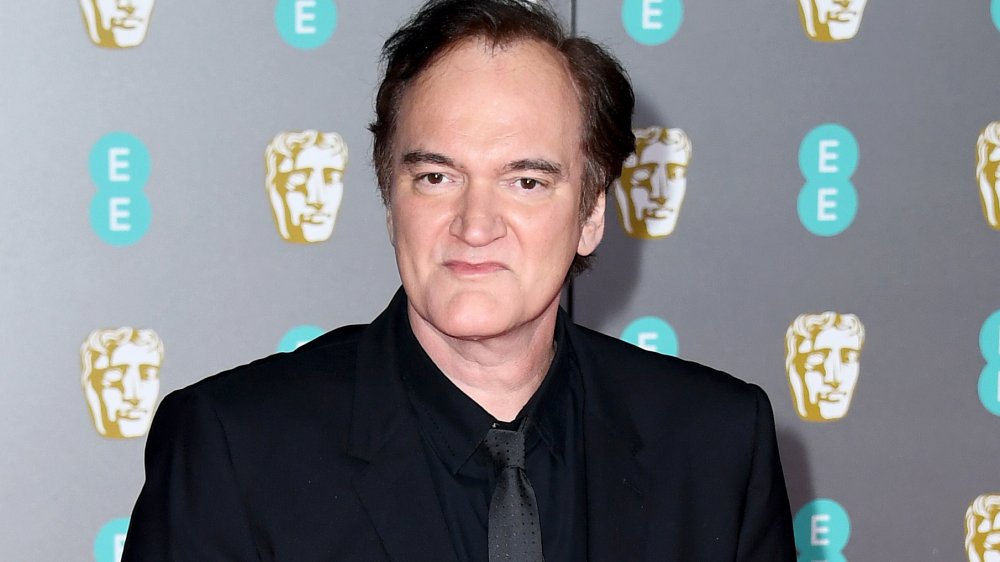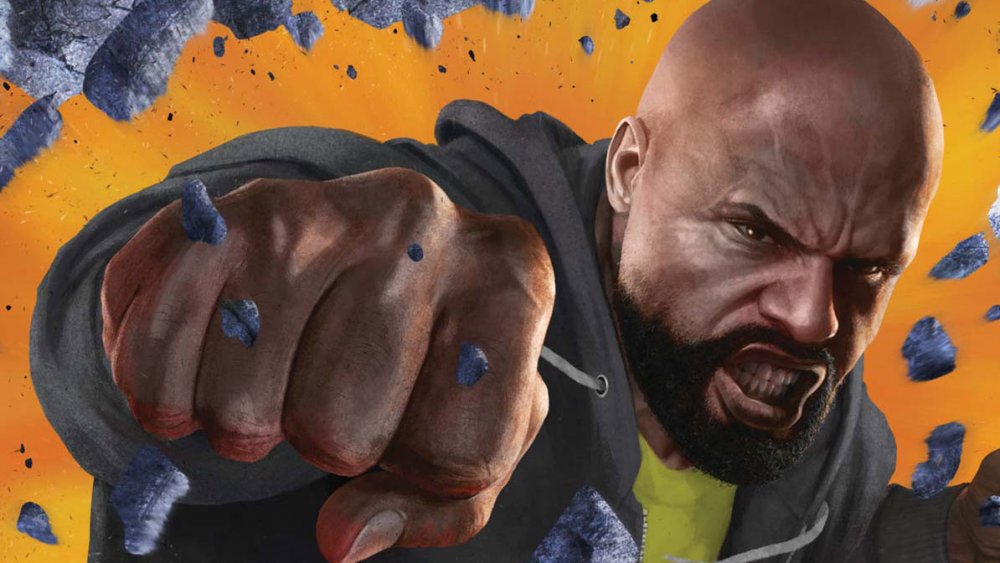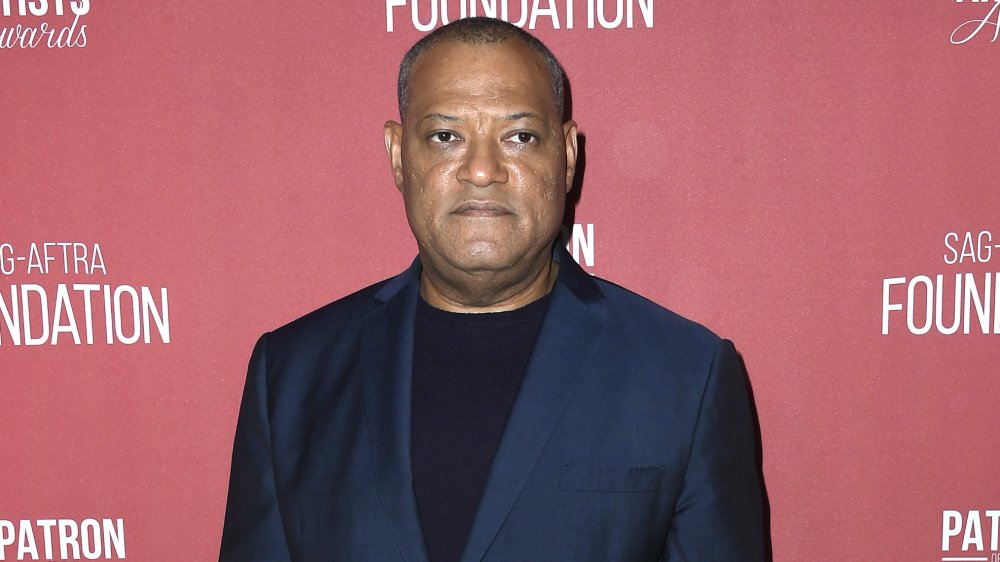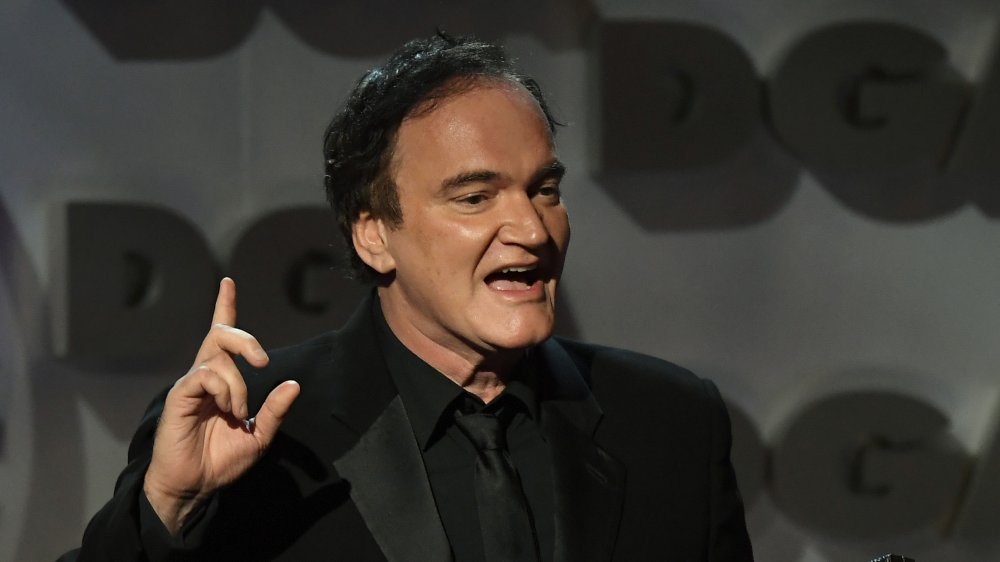The Real Reason Quentin Tarantino's Luke Cage Movie Never Happened
Comic books and superheroes are just two things in the constellation of influences that have permeated the films of Quentin Tarantino throughout his career. While he's mostly known for his gritty and narratively audacious crime dramas, films such as Kill Bill Vol. 1 and Vol. 2, Inglorious Basterds, and Django Unchained borrow more than a few tropes of the genre. It's no surprise, then, that even though Tarantino's never officially helmed a superhero movie, there have been a few potential projects in the works.
During a recent appearance on comedian Amy Schumer's podcast 3 Girls, 1 Keith (via The Guardian), Tarantino revealed some details about a Marvel film that he was seriously considering taking on. If things had gone a little bit differently, the director would have beat Netflix's Luke Cage series to the punch at delivering a live-action version of the titular hero. But, of course, Tarantino's planned Luke Cage adaptation never materialized. So, why did he never bring the New York City-based hero to the big screen?
When did Tarantino plan to make his Luke Cage movie?
Before we get into exactly why the project never came together, a little context is important.
As early as 2016, Tarantino has said that after the release of his feature-length debut Reservoir Dogs, he was kicking around the idea of directing a Luke Cage movie. His actual second feature film ended up being Pulp Fiction, a cultural juggernaut and industry redefining work that cemented Tarantino as a one of the most well-regarded directors of the '90s. Even though he had plans to tackle Luke Cage before Pulp Fiction, he clarified during his recent interview with Schumer that he wouldn't have abandoned his Palme d'Or-winning masterpiece. Instead, Luke Cage would have taken the place of his third feature film, Jackie Brown.
This does make some sense. Luke Cage began his life as a comic book series in the early '70s, and drew heavily from the popular blaxploitation genre of films that had emerged during that era. These were B-movies aimed specifically at black audiences, and were known for featuring intense violence.
Like the Luke Cage comics, Tarantino's film Jackie Brown was heavily influenced by the genre, despite it being fairly tame by comparison. It even starred Pam Grier, who made her mark as a star of blaxploitation cinema with roles in movies like Foxy Brown and Coffy. It's clear that whether it was with a Marvel property or the Elmore Leonard novel that Jackie Brown was adapted from, Tarantino was set on making his own version of a blaxploitation film during this time.
Quentin Tarantino wanted Laurence Fishburne for his Luke Cage movie
Other than the fact that he planned to set the film in the 1970s, the original time period of the Luke Cage comics, Tarantino hasn't revealed too many specific details about what he imagined for his Luke Cage movie. One very important detail he did drop, however, was the actor he had in mind for the titular role.
Tarantino was dead set on Laurence Fishburne stepping into the shoes of the hero for hire. In his interview with Schumer, Tarantino referred to Fishburne as "practically Marlon Brando" in terms of his acting abilities. In the early '90s, he was hardly alone in that assessment. In 1992, the year Reservoir Dogs was released, Fishburne won the Tony Award for Best Featured Actor in a Play for his role in Two Trains Running. By 1994, he'd also won an Emmy and been nominated for an Oscar. In terms of pure acting chops, it makes perfect sense why Fishburne was at the front of Tarantino's mind for the role.
But acting prowess isn't the only thing required to carry a superhero movie, and when Tarantino presented the idea of making a Luke Cage movie to some of his trusted friends, their response led to him abandoning the project for good.
Why Quentin Tarantino abandoned his Luke Cage movie
After developing the idea for his dream Luke Cage movie starring Laurence Fishburne, Tarantino presented it to his fellow comic-book-obsessed friends. He didn't get the response he was expecting. In fact, as Tarantino told Schumer during their interview, "What dissuaded me... was my comic-geek friends talked me out of it."
So what was their issue? According to Tarantino, his idea to cast Fishburne in the role didn't sit well with his pals. He said that all of his friends told him "it's got to be Wesley Snipes," who would go on to star as the titular Marvel Comics superhero in 1998's Blade. Their reasoning had little to do with acting talent, and everything to do with physique. Fishburne, they argued, would need to massively muscle up to play Luke Cage, while Snipes was "that way already."
While Tarantino clarified that he had no issue with the idea of casting Snipes other than that he already had his heart set on Fishburne, the cold water his friends threw on the idea was enough for him to give up on the project. Now that we've seen actors not known for their physiques — like Chris Pratt and Kumail Nanjiani — cast in superhero roles, it's clear that Tarantino's Fishburne-starring Luke Cage movie was simply too ahead of its time.



